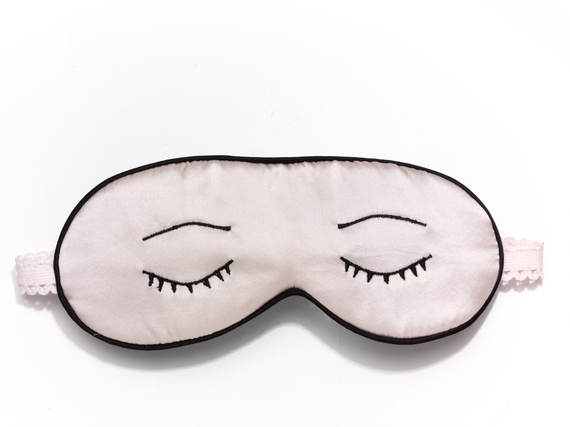For Vogue, by Jenna Rennert.
It's a nightly habit for some of us. You're lying in bed, totally exhausted, and for some reason can't catch a wink. Or perhaps you fall asleep, then wake up a couple of hours later to an endless cycle of tossing and turning that culminates in a 4:00 a.m. Instagram-stalking session. Could you have prevented the restlessness with a simple fix? Yes, and here's a hint: It has to do with what you ate for dinner.
Though most people aren't aware of it, what you eat is actually related to how well you sleep. "Unfortunately, there isn't a magic food that puts you into a dream state," says New York City nutritionist Jessica Katz, R.D., "but there are foods that won't interfere with sleep patterns."
First things first: Katz advises patients to eat at least two hours before bed in order to avoid acid reflux--which happens more easily when you're digesting in the lying-down position. Beyond that, "look for foods high in tryptophan," she says, referring to the amino acid that helps stimulate the production of serotonin and sleep-promoting melatonin. The amino acid is found in chia seeds, walnuts, and most animal proteins--ever wonder why that annual Thanksgiving meal makes you drowsy? For best results, according to Katz, combine it with a whole-grain carbohydrate. "Sushi with brown rice is a great choice," she says. Bonus points if you add magnesium-rich avocado, which can promote muscle relaxation.
If you're out late and come home with less than 2 hours before bedtime, Katz suggests consuming a small yet filling meal: "Breakfast for dinner is a perfect option"--like the easily digestible a.m. favorite, oatmeal, topped with bananas (packed with magnesium) and chia seeds for the extra boost of tryptophan. "If you've already eaten dinner and need a satisfying, light snack, grab a rice cake with almond butter or an orange, since they're high in vitamin C, a known stress reducer."
And though it's an age-old remedy, a warm glass of milk before bed might not be the best idea. Although milk is high in tryptophan, Katz warns light sleepers to skip it, since dairy may cause you to wake up with an upset stomach. "Stay away from foods high in caffeine, of course," she says, "and sugar"--the latter causes blood sugar levels to spike while you're trying to grab those essential z's.
Can a midnight snack, despite the rules about eating before bed, actually help you sleep better? "If you're hungry, yes," says Katz, who recommends munching on something filling, like a hard-boiled egg or a handful of melatonin-packed cherries. But skip foods that trigger a binge; this is the time to eat a finite portion of something satisfying, not indulgent. Stick to what's sensible, and you'll be snoozing in no time.
More from Vogue:
Why Marcia Brady Is Our Spirit Animal for Back-to-School Style
Celebrity Looks from the Red Carpet at People's Choice Awards 2016
Also on HuffPost:

